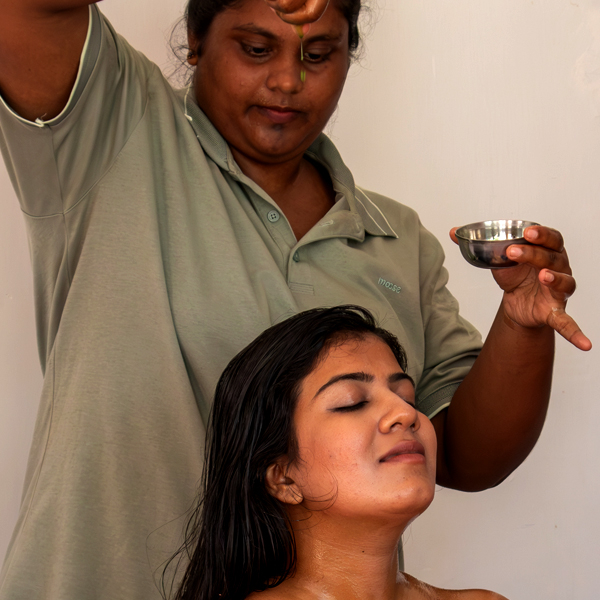Rosacea, Acne, and Blackheads
Skin conditions like rosacea, acne, and blackheads are not just cosmetic concerns; they significantly impact a person's confidence, social interactions, and overall well-being. These conditions can cause redness, breakouts, and skin irritation, making people feel self-conscious about their appearance. While some cases are mild, others can be severe, leading to discomfort, scarring, and long-term skin sensitivity. Treating these conditions is essential not just for aesthetic reasons but also to maintain healthy skin and prevent further complications.

Causes of Rosacea, Acne, and Blackheads
Rosacea is a chronic skin condition that primarily affects the face, causing persistent redness, visible blood vessels, and sometimes small, pus-filled bumps. It is more common in people with fair skin and is often triggered by factors like stress, spicy foods, alcohol, and sun exposure. Acne, on the other hand, occurs when hair follicles become clogged with oil, bacteria, and dead skin cells, leading to pimples, whiteheads, and cysts. It is most common among teenagers but can also affect adults. Blackheads, a milder form of acne, develop when pores become clogged with oil and dead skin, turning black due to oxidation.
These skin problems not only cause physical symptoms like irritation, pain, and inflammation but also affect a person's mental health. Many people with rosacea, acne, or blackheads experience anxiety, depression, or social withdrawal due to their appearance. This highlights the necessity of seeking proper treatment. While temporary solutions may provide relief, long-term healing requires a combination of skincare, lifestyle changes, and targeted treatments.
To achieve lasting results, it's important to address the root cause rather than just the symptoms. Conventional medicine, Ayurveda, and acupuncture all offer different approaches to managing these conditions. Understanding the strengths and limitations of each method can help in choosing the best treatment for long-term skin health.
|
Key Feature
|
Rosacea
|
Acne
|
Blackheads
|
|
Physical
Symptoms
|
Redness,
visible blood vessels, skin sensitivity, occasional bumps
|
Pimples,
whiteheads, cysts, inflammation, scarring
|
Small dark
spots, clogged pores, rough skin texture
|
|
Causes
|
Genetics,
immune system response, environmental triggers, stress
|
Hormonal
changes, excess oil, bacteria, diet, stress
|
Excess
oil, dead skin buildup, poor skincare
|
|
Cosmetic
Concerns
|
Persistent
redness, skin irritation, difficulty covering with makeup
|
Scarring,
breakouts, uneven skin tone
|
Dull skin,
uneven texture, enlarged pores
|
Cure from Rosacea, Acne, and Blackheads
Conventional medicine primarily focuses on managing symptoms rather than addressing the root cause. For rosacea, dermatologists often prescribe topical creams, antibiotics, and laser treatments to reduce redness and inflammation. Acne treatments include benzoyl peroxide, retinoids, and oral medications like antibiotics or hormone regulators. Blackheads are typically treated with salicylic acid, exfoliation, and prescription creams. While these treatments can provide quick relief, they may cause side effects like skin dryness, irritation, or dependency on long-term medication.
Ayurveda, an ancient healing system, takes a holistic approach by balancing internal energies and detoxifying the body. It identifies skin conditions as an imbalance of the body’s natural elements. For rosacea, cooling herbs like aloe vera and turmeric help reduce inflammation, while herbal blood purifiers like neem and manjistha work to clear acne. Blackheads are treated through gentle exfoliation, herbal face masks, and dietary changes that regulate oil production. Ayurveda also emphasizes dietary and lifestyle modifications to prevent future skin issues.
Acupuncture, a key component of traditional Chinese medicine, works by stimulating specific points on the body to restore balance and improve blood circulation. It is highly effective in reducing inflammation, regulating hormones, and enhancing the skin’s natural healing process. For rosacea, acupuncture targets areas that reduce facial redness and sensitivity. For acne, it helps balance hormonal fluctuations, reducing breakouts. Blackheads are managed by improving digestion and reducing excess oil production.
Each approach has its benefits, but for long-term healing, a combined treatment of Ayurveda and acupuncture is highly effective. Ayurveda detoxifies the body and nourishes the skin, while acupuncture promotes circulation and balances internal energy, leading to lasting skin improvements.
Holistic healing – TARA Ayurveda and acupuncture combine treatments
Combining Ayurveda and acupuncture provides the best of both worlds. Ayurveda focuses on internal purification and herbal remedies, ensuring that the body remains free of toxins that contribute to skin problems. Acupuncture complements this by improving blood circulation, reducing inflammation, and balancing hormones, making the healing process faster and more effective.
Unlike conventional treatments that provide temporary relief, this combination targets the root cause of skin disorders. Regular acupuncture sessions enhance the effects of Ayurvedic treatments by accelerating detoxification and reducing stress, which is a major trigger for rosacea and acne. Ayurvedic herbal supplements help in long-term skin nourishment, preventing future flare-ups. This approach not only heals the skin but also improves overall well-being.
People who have struggled with recurring skin issues often find lasting relief with this natural combination. The best part is that it avoids harsh chemicals, making it suitable for long-term use without side effects. If you’re looking for a gentle, effective, and lasting solution to rosacea, acne, or blackheads, a combined Ayurveda and acupuncture treatment is the ideal choice for beautiful, healthy skin.

